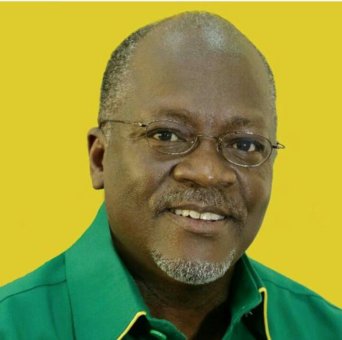- About
- Topics
- Story
- In-Depth
- Picks
- Opinion
- News
- Donate
- Signup for our newsletterOur Editors' Best Picks.Send
Read, Debate: Engage.
It was not an easy election, which Dr. John Pombe Magufuli lifted into office as the fifth president in the history of Tanzania on 5 November 2015. But what followed is one bang after another.
Bulldozer, workaholic, perfectionist, development dictator: The Tanzanians have many names for their new President - and have high hopes for him.
And yet, Magufuli is no stranger to the Tanzanian politics. Already under the presidency of Benjamin Mkapa he hold several ministerial offices from 1995-2010, including being the Minister of Labour and the Minister for Rural Development.
Now, as Magufuli promised, he will address the roots of corruption and build an anti-corruption court. That is very much in the spirit of many Tanzanians who mainly make the bribery responsible for the adverse economic situation of the country, which is rich in natural resources.
“I also understand that the president’s job is to help solve people’s problems without discriminations of race, tribe, religion or otherwise. To help bring these changes, I plan to do a lot of things,” Magufuli promised in his electioncampaign. Few weeks later he generates buzz.
They are small and sometimes bold steps, but they were quick to welcome by the Tanzanians, who have long complained of government overspending.
Part of Magufuli’s austerity measures are banning government officials from sending Christmas and New Year cards paid for by public funds or cancelling the country’s Independence Day celebrations, ordering that the public money for the festivities be spent instead on a clean-up campaign. According to Al Jazeera, Magufuli said it would be “shameful” to spend vast sums on the celebration when "our people are dying of cholera". He also issued an edict banning all foreign trips by government officials. Any external work requiring Tanzania’s presence would be done by the country’s diplomats abroad, the president’s office explained, according to qz.com. The new jolt through the country even goes so far that six Tanzanian government officials recently were jailed for lateness. Their punishment: six hours in custody. The next day they were two hours earlier.
Especially for the youth, which has played a crucial role in his election, Magufuli is a symbol for a new, fresh wind in the fight against corruption and for austerity plans in the country. Under #WhatWouldMagufuliDo, one of the trend hashtags in East Africa, they are displaying all kind of ways of saving money, with a more or less humorous approach.
Some Tanzania fear that Magufuli will lead his new office autocratically and hasty decisions are made, for which the government will pay at the end. As for example, when Magufuli detained - in his tenure as Minister - a large foreign fishing ship that was said to have illegally fished in Tanzanian waters. A court decided, however, that fishing is permitted at the site - the government had to pay penalties of 2.8 billion Tanzanian shillings (about 1.2 million euros).
His followers, however believe that the country needs not just big words, but a man of action to tackle problems such as rampant corruption and the stagnant economy.
And it seems, that is exactly what Tanzania's President John Magufuli does, when he ordered government officials to solve a string of problems that the people face including thousands of land disputes, which often are compounded by corrupt officials.
Although many measures of Magufuli’s new government may seem strange from the outside perspective, they are nevertheless an important sign for the Tanzanians. And who knows - some of them are potentially useful for the one or other Western government and well be worth considering.
